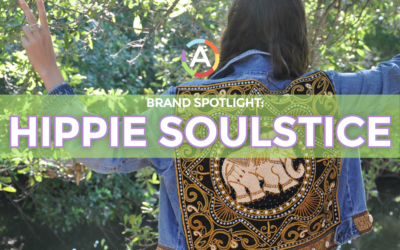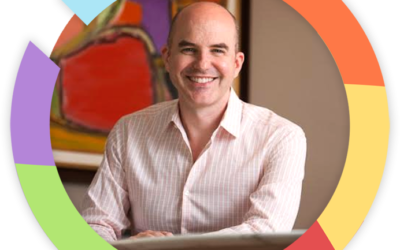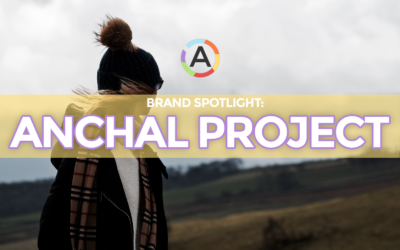An Interview with Wander Karma
(Makers of Handmade, Fair Trade Handbags & Accessories)
I’m Jessica – I was a mid-tier department and outlet specialty store buyer for several years until I decided go towards a more meaningful retail concept. I am currently contracting merchant support for a specialty e-commerce retailer, and organically growing Wander Karma in the evenings and weekends. It’s my passion project 🙂
What inspired the creation of your company, and when did it start?
On a trip to Turkey in September of 2014, Wanderlust and karma followed me throughout the trip. The Turkish people were so hospitable, and I learned so much about their Islamic faith. The hustle and bustle of the merchants and the vintage and artisan treasures in the Grand Bazaar fascinated me. I met artisan women that created the most beautiful Kilim rugs telling the stories of their lives through the symbols in the rugs.
After this trip, I decided that there was a more meaningful way I can use my merchant skill set, and the website launched with support of friends in November 2014.
What is your brand’s mission, and what causes drive you and your team?
The Wander Karma mission: (1) inspire wanderlust with our travel stories; (2) support the work of artisans through fair trade practices and telling their story; (3) give back to causes that support women around the world.
We believe in showcasing artisan products to engender a new norm of conscious consumerism. Our products are one-of-a-kind, preserve a historic tradition, and support local economies in underdeveloped countries. Many of the artisans are women, and we believe by paying fair trade prices – they can support their families, and overall local communities. Finally, we also believe in supporting women dealing with an uphill battle by giving a portion of our profits to causes that support women in need. Two organizations that we support are Metavivor.org – which supports women diagnosed with Metastatic Breast Cancer, and UNICEF Colombia – which supports the Indigenous tribes in the drought-stricken desert.
How is your brand socially responsible?
We support small local artisans and Indigenous tribes by supplying our store with their artisan creations. We strive to tell their story and educate the public about cultural traditions around the world. We close the loop by donating a portion of the profits to causes that support people in need.
What does your brand do to lower its ecological impact and/or promote environmental health and well-being?
Some of our artisans utilize products from nature, or upcycle old materials to create their pieces. We tell the story behind these products. We also do not mass produce any of our products, which results in less waste entering landfills and polluting the environment.
Does your company perform animal testing and/or use animal-based ingredients in your products? Why or why not?
Mostly, no. We do have some leather purses made by artisans in Morocco – a long tradition, but the practice to make the hydes utilizes the hydes as a by product to food production.
Where does your company make/manufacture your products, and why?
Turkey, Colombia, Morocco, and USA. These are were among some of my favorite countries, where I found the artisan products to be especially beautiful and creative.
Describe your design philosophy – how do you balance quality and affordability?
I like the overall look and feel of traditional, artisan products. I appreciate how the color and designs take on a kind of boho-chic style of today. By understanding the process and materials the artisan uses, I can determine the quality and the make. I always try to maintain my affordable prices, but reject the low prices in fast-fashion. Each product carries a unique, cultural story and tradition. There is a story in the details. I believe prices should reflect this kind of value and, of course, still abide by fair trade principles.
Tell us a little about the ingredients/materials you use. Generally, why did you pick them over other options?
I do not pick the materials, but allow the artisan to pick the materials and create in the textiles and colors that they see fit. I choose the product based on my sales history and consumer tastes’. I also often test what my customer may gravitate towards through Instagram votes.
What are the next steps for your company?
I would like to improve the “shoppability” and story-telling content on my website. I hope the next steps will involve working with UI/UX designers and travel bloggers. After this, I would like to get more involved with helping the artisans by telling their stories and continuing to expand my programs that give back to these communities — namely, focusing on the Wayuu tribe in Colombia. They need help and support.
How do you view the future of conscious consumption?
Every product should have more of a story behind it. That is, how it was made, and why it’s in the marketplace. I imagine these journeys can be communicated through videos that tell a story from the perspective of the artisan and provide an understanding of the supply chain — especially, why a certain product costs a given amount, and why we should pay that price.
More transparency is key for the future of conscious purchasing.
As a parting sentiment, if you could only use one word to describe your brand ethos – what would it be?
“Wanderkarma” 🙂
Have a question? I’ll answer.
The People. The Brands.
Hippie Soulstice: Everyday Eco Ethical Fashion, Handmade w/ Upcycled Fabrics
An Interview with Aesthetic Content
We interviewed Patrick, Founder of Aesthetic Content, to learn how his company crafts their minimalist, sustainable decor, and to hear how sustainability and design can work together harmoniously.
Minimalist Decor, For Any Modern Living or Bedroom (Sustainable Cork)
A Few New & Popular Yoga Essentials: Eco Friendly & Ethically Made
4 Eco Ethical Fashion Basics: Trendy, New Holiday Gifts by Anchal
Green Kitchen Makeover: 4 Best Eco Friendly, Bamboo Kitchen Utensils
Get on the list.




















0 Comments